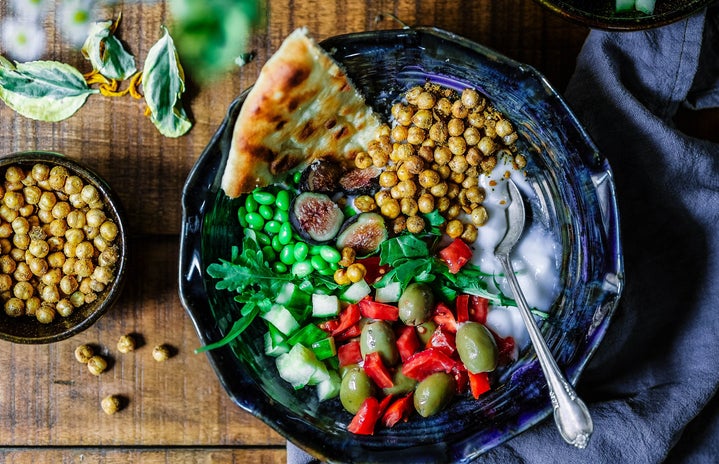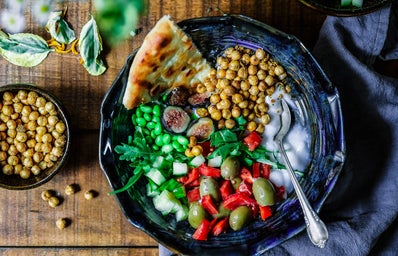Edited by: Aahana Banerjee
It is currently 10:13 pm as I write this on a silent, deserted campus during spring break. I am away from my home, my family, which fills me with a certain kind of longing to be in the garlic scented hallway of my flat. To be sitting on the almost broken chairs with the too-hard-to-sit-on seats. To be standing on the slightly muddy balcony while two fat lizards fester on my old pink bicycle parked there for what seems like a century now.
I feel this intense craving for home-cooked mutton curry, the kind my defeated, agitated, but secretly smiling dad would cook after giving in to me and my mum’s tantrums. The light, slightly sour, curry cooked Bengali style. I could taste home.
From a very young age, my father has indirectly taught me the importance of food in relationships. I’ve picked up from him the fact that food is not for the body but for the soul, and that sharing food with everyone is one of the greatest joys of life. Watching “Masterchef Australia” at 9 pm on weeknights has been a family ritual for years on end.
With much alacrity, I rush to my friend on the 7th floor. I might shit on her for being a vegetarian but she does go along with my very witless, ill-conceived plans at times. The both of us, eager to get away from the campus, go to the shake stall near campus, where we share a somewhat satiating “badam” (almond) shake. But that still doesn’t cut it. We make our way to the next stall. I guzzle down a half-plate of steamed chicken momos. The real taste lies not so much in the flavour but in the fact that I just saved myself ₹40 by not buying them from the campus.
This is a “splurge” I allow myself maybe once every 2 months. It is also interesting to note just how predominant the feeling of guilt becomes with everything that you do in college. Food, something that is supposed to be a primarily pleasant thing for me, becomes something so convoluted — a source of great consternation.
Feeling somewhat full, but still heavily dissatisfied, we return to our humble abodes. Nothing really makes up for the home-cooked “panta bhat” (A Bengali peasant dish made from fermented, usually leftover rice) put together by Manju aunty, the very spicy chilli chicken that I concocted on Friday nights after giving in to my father’s emotional blackmails or even the very buttery chicken galouti by brother would feng shui with the limited equipments we have at home.
For someone whose major form of expression is cooking and eating good, hearty meals, being away from home even during holidays is an added burden. To shell out money for very mediocre, overpriced food at Delhi cafes feels blasphemous to say the least. While eating out, the rule of thumb, at least for me, seems to be: “the dingier the better”. Away from the fad of social media and the urge to keep up with changing times, these places usually tend to do a few things right, and are famous for it. But even then, the time, money and effort associated with that can be a lot.
Cooking with whatever I can source from campus seems to be a good coping mechanism. With so much focus on the “authentic” way of cooking, some seem to miss the primal point when it comes to cooking: cooking is a way to fortify one’s cultural identity. You do not have to have all the ingredients your grandma cooked with, or even the same flair for cooking that she seemed to possess. The process of cooking in and of itself feels therapeutic, especially with the bits and scraps I can arrange on campus.
Something as simple as sweating garlic on a pan, adding an egg to the packet of instant noodles I put together on a rather relaxed Saturday evening or even making a salad out of the collection of fruits from the mess I stored in my room could remind you of home.
In the words of our beloved Anthony Bourdain — “Food is everything we are. It’s an extension of nationalist feeling, ethnic feeling, your personal history, your province, your region, your tribe, your grandma. It’s inseparable from those from the get-go.” Therefore, your sense of identity may feel a little muddled at university and not being able to eat the kind of food that defines you and your upbringing may be a reason for it. So taking some out to cook (not perfectly always) or to spend a teensy bit on something you like, without feeling guilty could be a way to revisit home.


